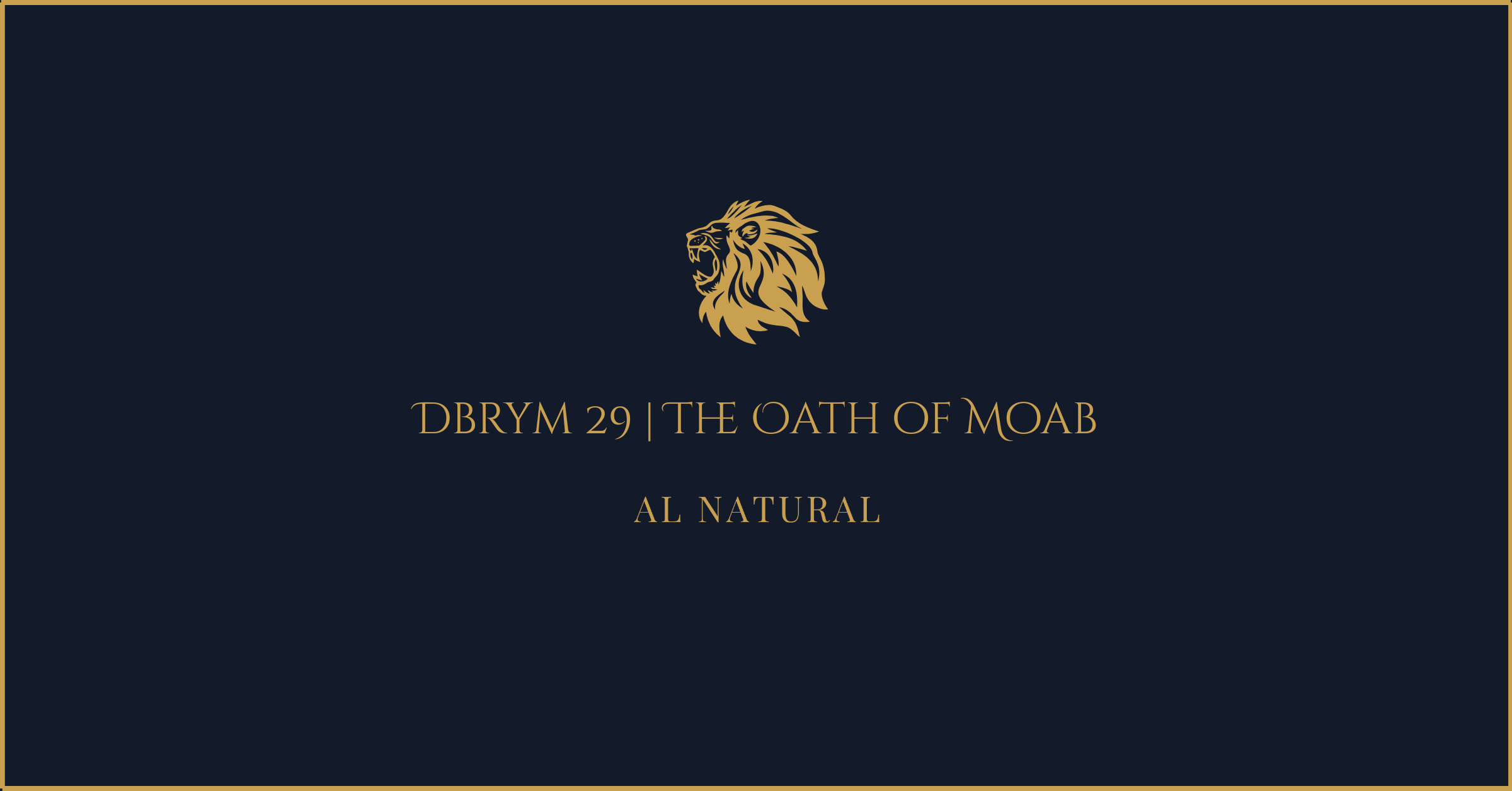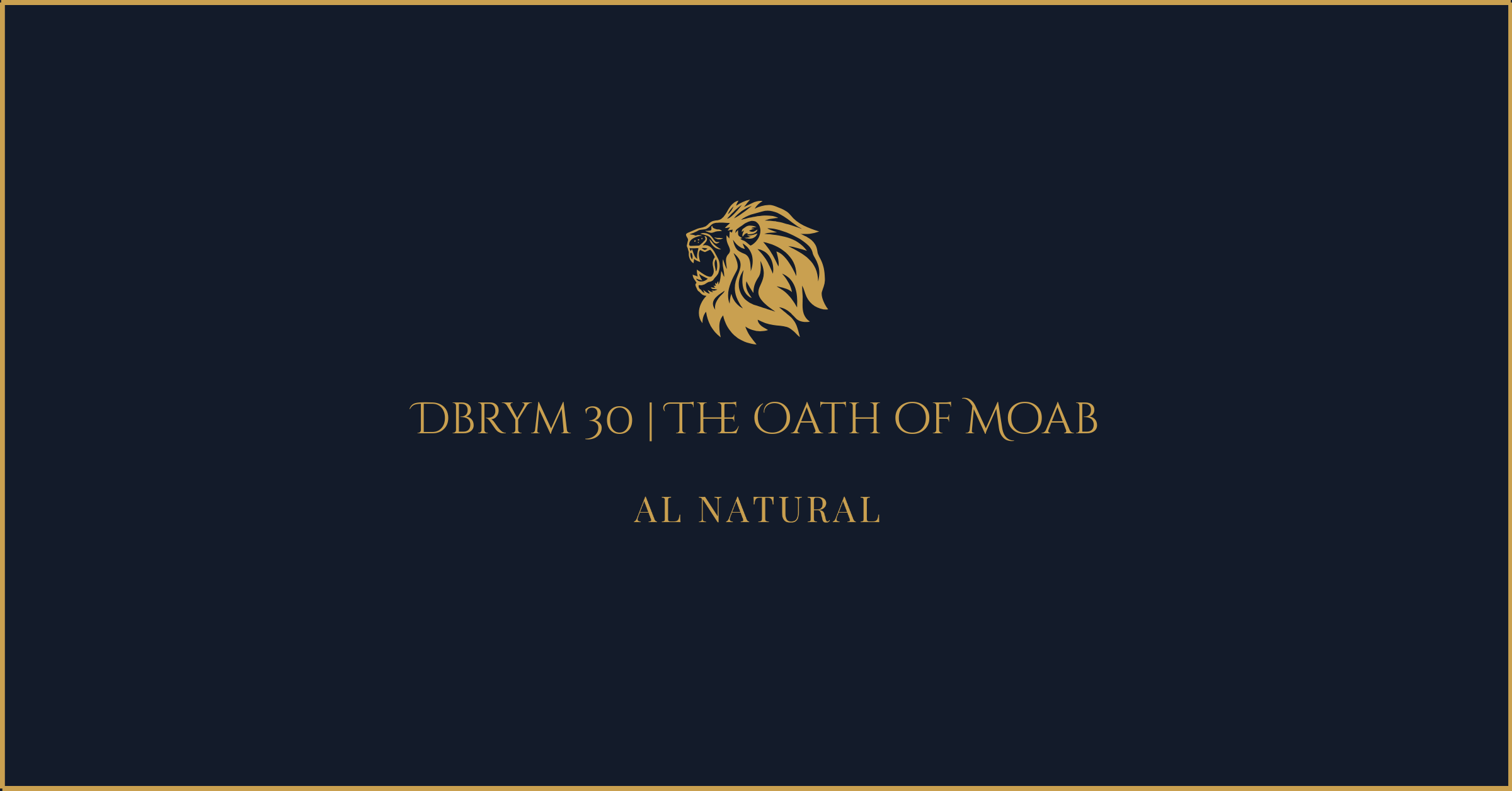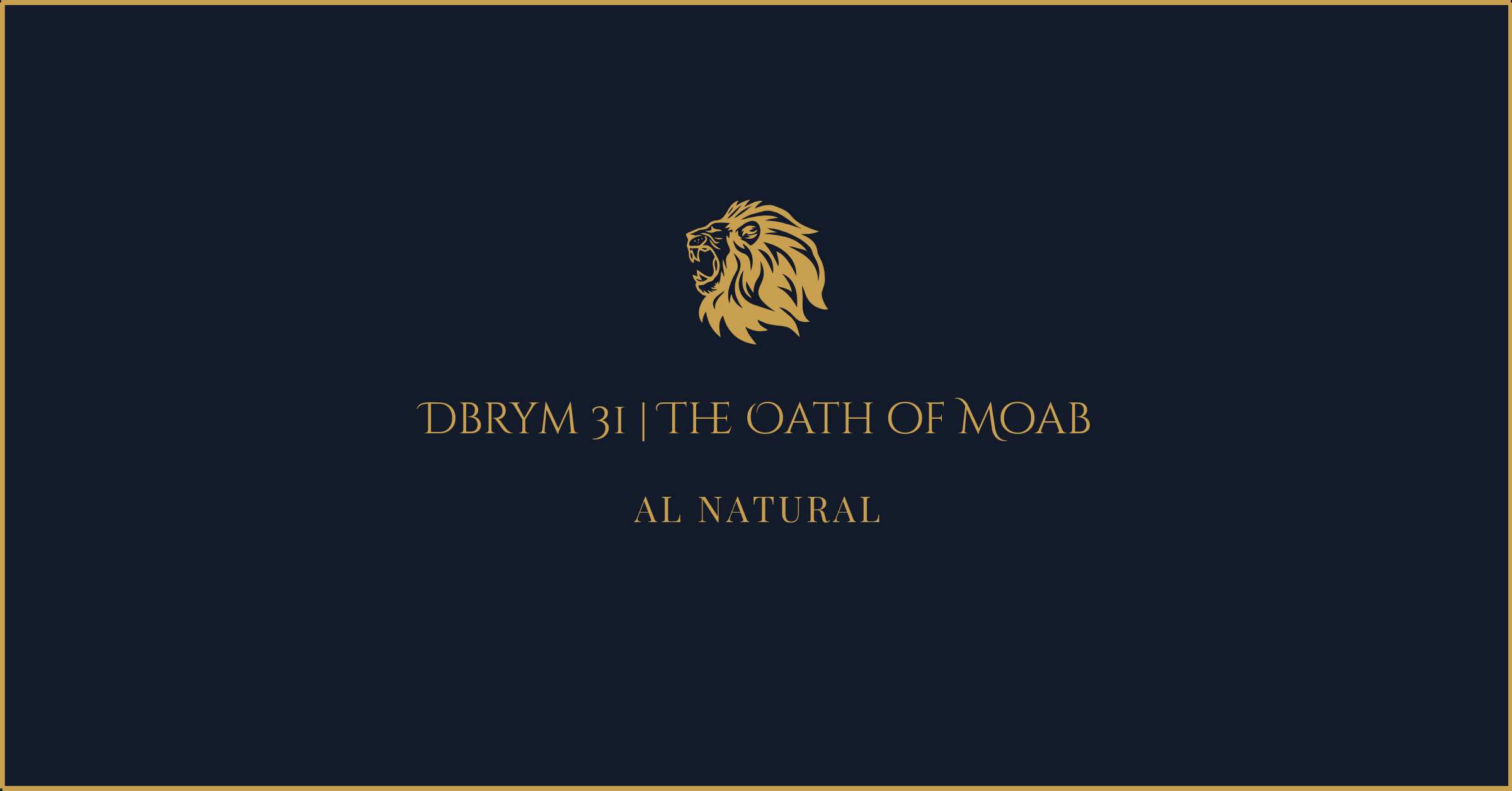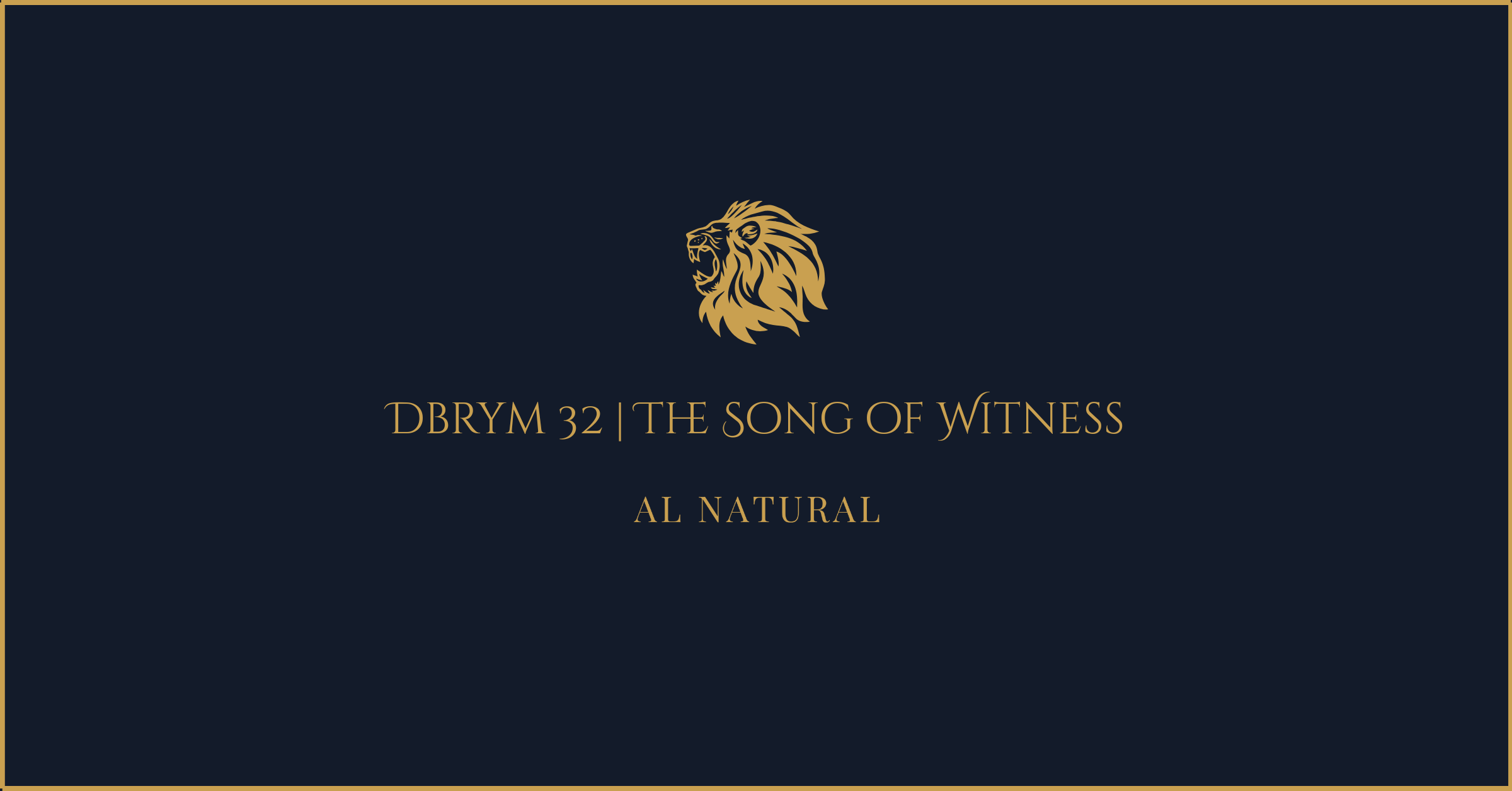Dbrym 31: The Coming Betrayal and Transfer of Authority
Dbrym 31 documents the final preparations before Mashah's death, including the transfer of leadership to Yahushua and AL YHUH's revelation of Yshral's certain future betrayal. This chapter shifts from the conditional "if" of previous chapters to the absolute certainty of "when" Yshral will turn away.
AL YHUH commands the writing of the Song of Witness (which becomes Dbrym 32) specifically to serve as testimony against Yshral after they break the oath. This is not hopeful prophecy but legal documentation prepared in advance. AL YHUH knows the betrayal is coming and ensures evidence exists before it happens.
The chapter establishes multiple witnesses: the Torah itself placed beside the ark, the Song taught to all Yshral, heaven and earth called to witness, and the Levites charged with placing beside the ark. Every safeguard is put in place, yet AL YHUH states plainly that Yshral will corrupt themselves after Mashah's death.
This foreknowledge eliminates any claim that AL YHUH was surprised by Yshral's betrayal or that the scattering was unplanned.
Everything was documented in advance, witnesses were established, and consequences were clearly stated while Mashah still lived.
Dbrym 31:1-6: Yahushua of Aparym Given Sceptre of Yshral
Direct Torah Citation
(1) And Mashah went and spoke these words unto all Yshral. (2) And he said unto them, I am a hundred and twenty years old this day; I can no more go out and come in: also YHUH has said unto me, You shall not go over this Yarden. (3) YHUH your AL, he will go over before you, and he will destroy these nations from before you, and you shall possess them: and Yahushua, he shall go over before you, as YHUH has said. (4) And YHUH shall do unto them as he did to Sihon and to Og, kings of the Amorites, and unto the land of them, whom he destroyed. (5) And YHUH shall give them up before your face, that you may do unto them according unto all the commandments which I have commanded you. (6) Be strong and of a good courage, fear not, nor be afraid of them: for YHUH your AL, he it is that does go with you; he will not fail you, nor forsake you.
Mashah's Address to All Yshral
Verses 1-2: Mashah Charges the Scepter of Yshral Yahushua
"And Mashah went and spoke these words unto all Yshral" - Formal address to the complete assembly. Every member of Yshral hears this final testimony. No one can claim ignorance of the transition.
"I am a hundred and twenty years old this day" - Precise age given as legal testimony. Mashah's life divides into three forty-year periods: Mitsrayim, Midian, and wilderness leadership. The completion is exact, not approximate.
"I can no more go out and come in" - Physical capacity ended. The phrase "go out and come in" means military leadership. Mashah can no longer lead in battle.
"YHUH has said unto me, You shall not go over this Yarden" - AL YHUH's decree stands firm. Mashah struck the rock instead of speaking to it (Bmdbr 20:8-12), breaking the type. His exclusion from the land is irreversible.
Verse 3: AL YHUH and Yahushua Lead Forward
"YHUH your AL, he will go over before you" - AL YHUH Himself leads the conquest. Not human strategy but AL YHUH's direct action determines victory.
"He will destroy these nations from before you" - AL YHUH does the destroying, not Yshral's military might. The nations' removal is AL YHUH's work.
"And Yahushua, he shall go over before you" - Yahushua (called Joshua in error) becomes the visible leader/scepter that was promised to Aparym in Brashyt 49:10, while AL YHUH remains the true commander. The Name Yahushua was given to Hushai from Aparym by AL YHUH. When his original name Hushai was changed (Bmdbr 13:16). AL YHUH declared "My Name is in him" (Shmuth: 23:21), thus Yahu-shua contains YHUH’s own name, meaning “YHUH is salvation", showing AL YHUH's deliverance, not human achievement.
Bmdbr 32:20-32 records that Gad (along with Reuben) would go armed before Yshral to lead the conquest. Gad takes the frontline position, fulfilling their role as the Law guardian and protective barrier for Yshral (Dbrym 33:20-21). AL YHUH uses and empowers specific people. Yahushua as visible commander/Sceptre of Aparym with YHUH’s name in him, and Gad as Law guardian.
"As YHUH has said" - Reference to previous declaration (Bmdbr 27:18-23). This transfer was planned and announced, not sudden or unexpected.
Verses 4-5: Previous Victory as Pattern
"As he did to Sihon and to Og, kings of the Amorites" - Recent historical proof of AL YHUH's power. These victories happened in living memory, not ancient history. Significantly, Bmdbr 21:21-35 and Bmdbr 32 record that it was Gad, Reuben, and the forces under Yahushua who conquered these specific territories. This established the pattern: Yahushua commanding with YAH's name in him, Gad and Reuben as the strike force leading the charge. Their reward for this frontline service was receiving these very lands east of Yarden.
"Whom he destroyed" - Complete destruction, not negotiated peace. The same fate awaits the Canaan nations. The strike team pattern continues - Gad/Reuben as military vanguard, Yahushua as AL YHUH's named commander.
"YHUH shall give them up before your face" - AL YHUH delivers the enemy. Victory comes through AL YHUH's action, then Yshral executes judgment.
"That you may do unto them according unto all the commandments" - Specific commands for conquest given previously (Dbrym 7:1-5, 20:16-18). No improvisation allowed. Follow exact instructions for dealing with these nations.
Verse 6: Courage Through AL YHUH's Presence
"Be strong and of a good courage" - Two commands: strength (chazaq) and courage (amats). Internal fortitude and external bravery both required.
"Fear not, nor be afraid of them" - Two prohibitions: don't fear (yare) and don't be terrified (arats). Both emotional fear and paralyzing terror forbidden.
"For YHUH your AL, he it is that does go with you" - Present continuous action. AL YHUH actively accompanies, not passively observes.
"He will not fail you, nor forsake you"
Two guarantees from AL YHUH:
- Will not fail (raphah) - won't let go or weaken
- Won't forsake (azab) - won't abandon or leave behind
These promises apply during conquest under Torah keeping. When Yshral later breaks Torah, AL YHUH does forsake them as warned, proving the conditional nature of this promise.
Dbrym 31:7-13 : Yahushua Charged as Sceptre of Yshral in Front of the Assembly
Direct Torah Citation
(7) And Mashah called Yahushua, and said unto him in the sight of all Yshral, Be strong and of a good courage: for you must go with this people unto the land which YHUH has sworn unto their fathers to give them; and you shall cause them to inherit it. (8) And YHUH, he it is that does go before you; he will be with you, he will not fail you, neither forsake you: fear not, neither be dismayed. (9) And Mashah wrote this law, and delivered it unto the priests the sons of Levi, which bare the ark of the covenant of YHUH, and unto all the elders of Yshral. (10) And Mashah commanded them, saying, At the end of every seven years, in the solemnity of the year of release, in the feast of tabernacles, (11) When all Yshral is come to appear before YHUH your AL in the place which he shall choose, you shall read this law before all Yshral in their hearing. (12) Gather the people together, men, and women, and children, and your stranger that is within your gates, that they may hear, and that they may learn, and fear YHUH your AL, and guard to do all the words of this law: (13) And that their children, which have not known any thing, may hear, and learn to fear YHUH your AL, as long as you live in the land whither you go over Yarden to possess it.
Scepter Given to Yahushua of Aparym in Front of Yshral
Verses 7-8: Commissioning of Yahushua as Scepter of Yshral
"Mashah called Yahushua, and said unto him in the sight of all Yshral" - Public transfer of authority with complete national witness. No secret appointment, no private succession. Every member of Yshral sees this transition.
"Be strong and of a good courage" - Same charge given to all Yshral now focused on Yahushua personally. The leader must embody what the people need.
"You must go with this people unto the land" - Yahushua goes WITH them, not over them as ruler. His role is to lead them into what AL YHUH swore, not to rule by his own authority.
"You shall cause them to inherit it" - Yahushua facilitates the inheritance but AL YHUH gives it. The human leader executes what AL YHUH decreed.
"YHUH, he it is that does go before you" - Repetition emphasizes AL YHUH goes first. Yahushua follows AL YHUH, then the people follow.
"He will not fail you, neither forsake you" - Personal promise to Yahushua conditional on Torah keeping. When leaders keep Torah, AL YHUH remains with them.
Verse 9: Torah Written and Delivered
"And Mashah wrote this law" - Physical writing by Mashah's hand. Not oral tradition, not passed down verbally, but written document. This destroys claims of oral law having equal authority.
"Delivered it unto the priests the sons of Levi" - Levites receive custody of the written Torah. Their job: preserve it unchanged, not interpret or add to it.
"Which bare the ark of the covenant" - Those who carry the ark also guard the Torah. The same priests responsible for AL YHUH's presence also protect His written word.
"And unto all the elders of Yshral" - Dual custody: Levites AND elders. This prevents any single group from claiming exclusive control over Torah.
Verses 10-11: Septennial Public Reading of the Torah is Requirement
"At the end of every seven years" - Mandatory seven-year cycle. Not optional, not when convenient, but scheduled by AL YHUH's calendar.
"In the year of release" - The shemittah year when debts cancel and land rests. When Yshral releases economic burden, they must hear Torah again.
"In the feast of tabernacles" - During Sukkot when all Yshral gathers. Maximum attendance ensured.
"When all Yshral is come to appear before YHUH" - National assembly required. Every person who can travel must attend.
"You shall read this law before all Yshral in their hearing" - Complete public reading of entire Torah. Not selected portions, not interpreted sections, but the whole law read aloud exactly as written.
Verses 12-13: Full Yshral Assembly Required
"Gather the people together" - Active gathering commanded, not voluntary attendance.
Listed specifically:
- Men - all adult males
- Women - not excluded from hearing
- Children - learning from youth
- Stranger within gates - sojourners bound while dwelling with Yshral
"That they may hear, and that they may learn" - Two-stage process: first hear the words, then learn their meaning. Hearing comes before understanding.
"And fear YHUH your AL" - Proper fear (reverence) results from hearing Torah. Knowledge of AL YHUH's requirements produces appropriate awe.
"Guard to do all the words of this law" - Ultimate purpose: guarding and doing. Not philosophical knowledge but practical application.
"Their children, which have not known any thing" - Each new generation must hear directly. Parents cannot substitute for public reading. Every generation needs firsthand exposure to complete Torah.
"As long as you live in the land" - This command continues perpetually while in the land. No expiration date, no fulfillment that ends it.
AL YHUH Prevents Torah Corruption Through Public Reading
This system prevents Torah corruption:
- Written document (not oral)
- Dual custody (Levites and elders)
- Public reading every seven years
- Complete text read (not selections)
- All people hear directly (not through teachers)
- Children included (generational continuity)
This establishes the unending nature of Torah for Yshral. No provision exists for adding another book. Yahushua receives the Sceptre charge to lead Yshral into the land as AL YHUH's appointed "malakh" (King/Scepter), but no authority to change the Torah or write new scripture. The Torah stands complete at Mashah's death. Anything written after Dbrym 34 violates the command not to add (Dbrym 4:2-3, 12:32-13:2-3) and stands void.
Dbrym 31:14-18: AL YHUH Reveals the Coming Betrayal by Yshral
Direct Torah Citation
(14) And YHUH said unto Mashah, Behold, your days approach that you must die: call Yahushua, and present yourselves in the tabernacle of the congregation, that I may give him a charge. And Mashah and Yahushua went, and presented themselves in the tabernacle of the congregation. (15) And YHUH appeared in the tabernacle in a pillar of a cloud: and the pillar of the cloud stood over the door of the tabernacle. (16) And YHUH said unto Mashah, Behold, you shall sleep with your fathers; and this people will rise up, and go a whoring after the mighty ones of the strangers of the land, whither they go to be among them, and will forsake me, and break my covenant which I have made with them. (17) Then my anger shall be kindled against them in that day, and I will forsake them, and I will hide my face from them, and they shall be devoured, and many evils and troubles shall befall them; so that they will say in that day, Are not these evils come upon us, because our AL is not among us? (18) And I will surely hide my face in that day for all the evils which they shall have wrought, in that they are turned unto other mighty ones.
Yshral's Future Betrayal is Certain and Documented
Verses 14-15: Final Meeting at the Tabernacle
"Your days approach that you must die" - AL YHUH announces Mashah's approaching death directly. Not illness or age taking him, but AL YHUH's appointed time.
"Call Yahushua, and present yourselves in the tabernacle" - Both Lawgiver and Scepter are summoned together. Yahushua receives his Scepter charge in Mashah's presence.
"That I may give him a charge" - AL YHUH directly commissions Yahushua, not through Mashah. This establishes Yahushua's authority comes from AL YHUH, not human appointment.
"YHUH appeared in the tabernacle in a pillar of a cloud" - Visible manifestation of AL YHUH's presence. The same cloud that led them through the wilderness now appears for his charge as the Scepter of Yshral.
"The pillar of the cloud stood over the door" - Blocking entry, making this meeting private between AL YHUH, Mashah, and Yahushua.
What follows is not public knowledge yet.
Verse 16: AL YHUH warns Mashah and Yahushua of Yshral's Coming Betrayal
"Behold, you shall sleep with your fathers" - Not cessation of existence but restful sleep in Sheol. The Hebrew word indicates peaceful rest, not nothingness. Fathers "gather" their kin into Sheol - family reunification in the place of rest. Torah presents Sheol as a real place where the dead sleep, awaiting AL YHUH's future action. Mashah joins the patriarchs in this sleep, not in non-existence.
"And this people will rise up" - Not "might" or "could" but WILL. AL YHUH speaks with absolute certainty. The betrayal is not potential but guaranteed.
"Go a whoring after the mighty ones of the strangers of the land" - Spiritual adultery with foreign deities. The language of prostitution describes their betrayal - selling themselves to other mighty ones.
"Whither they go to be among them" - The corruption happens IN the land, not outside it. Being in the promised land doesn't prevent betrayal.
"Will forsake me, and break my covenant which I have made with them"
Two distinct acts:
- Forsake AL YHUH (abandon relationship)
- Break the covenant (violate Torah terms)
Both relational and Torah-breaking betrayal will occur.
Verse 17: AL YHUH's Response to Betrayal
"Then my anger shall be kindled against them in that day" - Immediate response when betrayal occurs. Not delayed judgment but instant kindling of wrath.
"I will forsake them" - Symmetric response: they forsake AL YHUH, AL YHUH forsakes them. The abandonment is mutual.
"I will hide my face from them" - Active concealment. AL YHUH doesn't just leave but deliberately hides His presence. No access to His guidance or protection.
"They shall be devoured" - Yshral will become prey to their enemies (named in Dbrym 32). Without AL YHUH's protection, enemies devour them.
"Many evils and troubles shall befall them" - Multiple calamities, not single judgment. Continuous disasters follow the betrayal.
"Are not these evils come upon us, because our AL is not among us?" - They will correctly diagnose the problem but not return to Torah. Knowledge without repentance.
Verse 18 — Double Hiding for Double Betrayal
"I will surely hide my face" - Hebrew uses double language (haster astir) for emphasis. Complete and deliberate hiding, not partial withdrawal.
"In that day" - Specific time when the hiding intensifies.
"For all the evils which they shall have wrought" - The hiding matches the extent of their evil. Complete evil brings complete hiding.
"In that they are turned unto other mighty ones" - The specific evil: turning to other deities. Not just forsaking AL YHUH but replacing Him.
Yshral's Foreknowledge Eliminates Excuses
AL YHUH mercifully reveals this before it happens, establishing:
- The betrayal is certain, not possible
- AL YHUH knows in advance (not surprised)
- The consequences are justified (warned beforehand)
- The pattern is documented (for future recognition)
AL YHUH knew Yshral would betray, told them they would betray, and explained exactly what would happen when they did.
Dbrym 31:19-23: The Song of Witness Commanded
Direct Torah Citation
(19) Now therefore write you this song for you, and teach it the children of Yshral: put it in their mouths, that this song may be a witness for me against the children of Yshral. (20) For when I shall have brought them into the land which I swore unto their fathers, that flows with milk and honey; and they shall have eaten and filled themselves, and waxen fat; then will they turn unto other mighty ones, and serve them, and provoke me, and break my covenant. (21) And it shall come to pass, when many evils and troubles are befallen them, that this song shall testify against them as a witness; for it shall not be forgotten out of the mouths of their seed: for I know their imagination which they go about, even now, before I have brought them into the land which I swore. (22) Mashah therefore wrote this song the same day, and taught it the children of Yshral. (23) And he gave Yahushua the son of Nun a charge, and said, Be strong and of a good courage: for you shall bring the children of Yshral into the land which I swore unto them: and I will be with you.
The Song as a Witness for AL YHUH Against Yshral
Verse 19: Mashah Instructed to Write the Song
"Now therefore write you this song for you" - Direct command to write, not compose orally. The Song (Dbrym 32) must be written documentation, not passed down verbally.
"Teach it the children of Yshral" - Active teaching required. Not just written but memorized and transmitted to ensure preservation.
"Put it in their mouths" - The Song must be recitable from memory. Every Yshralite should be able to speak it without reading.
"That this song may be a witness for me against the children of Yshral" - Purpose stated clearly: the Song testifies AGAINST Yshral, not for them. AL YHUH establishes evidence of their future betrayal before it happens.
Verse 20: The Sequence of Yshral's Corruption Spoken by AL YHUH
"When I shall have brought them into the land" - AL YHUH brings them in as promised. The betrayal happens after AL YHUH fulfills His part.
"Which I swore unto their fathers" - Reference to the oath to Abraham, Isaac, and Jacob. AL YHUH keeps His oath even knowing Yshral will break theirs.
"That flows with milk and honey" - The land's abundance described. Not a difficult land but one of plenty.
"They shall have eaten and filled themselves, and waxen fat"
Three stages of Yshral's total satisfaction:
- Eaten (consumed)
- Filled (satisfied)
- Waxen fat (excess prosperity)
Prosperity leads to forgetting AL YHUH, not poverty.
"Then will they turn unto other mighty ones", The sequence is certain: prosperity leads to Yshral turning away to serve other gods. Not "might turn" but "will turn."
"And serve them, and provoke me, and break my covenant"
Three acts of Yshral's coming betrayal of AL YHUH:
- Serve other mighty ones (action)
- Provoke AL YHUH (deliberate offense)
- Break the oath (violate Torah terms)
Verse 21: AL YHUH's Witness Song is a Perpetual Testimony Against Yshral
"When many evils and troubles are befallen them" - The consequences come as documented. Multiple disasters, not single judgment.
"This song shall testify against them as a witness" - The Song stands as witness in court. When they claim innocence, the Song they memorized testifies to their guilt.
"For it shall not be forgotten out of the mouths of their seed" - Generational preservation guaranteed. Even in dispersion, the Song remains in memory. This proves true - even today, portions of the Song survive in cultural memory.
"For I know their imagination which they go about, even now" - AL YHUH sees their heart's inclination before they enter the land. The word "imagination" (yetser) means their internal formation or inclination toward evil.
"Before I have brought them into the land which I swore" - The corrupt imagination exists before entering the land. The land doesn't cause corruption; they bring corruption with them.
Verse 22: Mashah Immediately Completes the Witness Song
"Mashah therefore wrote this song the same day" - No delay in obedience. The very day AL YHUH commanded, Mashah wrote the Song.
"And taught it the children of Yshral" - Written and taught immediately. Both preservation methods implemented without postponement.
Verse 23: Yahushua's Direct Charge from AL YHUH
"And he gave Yahushua the son of Nun a charge" - The "he" refers to AL YHUH, not Mashah (see verse 14 where AL YHUH says "I may give him a charge"). AL YHUH directly commissions Yahushua as Scepter of Yshral (as foretold by Yaiqob in Brashyt 49:10).
"Be strong and of a good courage" - Same charge repeated, now directly from AL YHUH's mouth.
"For you shall bring the children of Yshral into the land" - Yahushua will bring them in, but AL YHUH brought them to this point. The Sceptre of Aparym executes AL YHUH's plan (Shmuth 23:20-23) .
"Which I swore unto them" - The oath stands despite knowing their betrayal. AL YHUH's faithfulness doesn't depend on Yshral's faithfulness.
"And I will be with you" - Personal promise to Yahushua. AL YHUH's presence with Yshral's King continues while they keep Torah.
AL YHUH's Witness Song's Purpose
The Song of Witness for AL YHUH (Dbrym 32) serves multiple functions:
- Documents betrayal before it happens
- Preserves in memory when books are lost
- Testifies against false innocence claims
- Survives dispersion through oral preservation
- Proves AL YHUH's foreknowledge and justice
Dbrym 31 Torah Witness Summary
Yahushua of Aparym is given the scepter and Certain Betrayal
Dbrym 31 documents Mashah's final preparations before death, establishing multiple witnesses against Yshral's coming betrayal. AL YHUH states with certainty, not possibility, that Yshral "will rise up, and go after the mighty ones" (verse 16).
This is not conditional prophecy but documented fact from AL YHUH Himself.
Key witnesses established:
- The complete Torah placed beside the ark (Moab oath for Yshral's priesthood)
- The stone tablets inside the ark (Horeb oath for all)
- The Song of Witness taught to every mouth
- Heaven and earth called to record
- Leadership assembly who heard directly
Mashah declares: "While I am yet alive with you this day, you have been turning away" (verse 27). The corruption is already present, guaranteed to worsen after his death. The "latter days" corruption encompasses both physical (land, bodies, creation) and spiritual (Torah) betrayal.
Next Torah Witness is Dbrym 32, AL YHUH's Witness Song for This Day
Dbrym 32, the Song of Witness for AL YHUH against Yshral and their enemies, is the most important chapter for our current time.
AL YHUH commanded this Song of His own words to testify against Yshral and their enemies in the "latter days" when evil befalls (31:29). AL YHUH said The Witness Song is to come forward as witness not only against scattered Yshral but also against the Eagle nation identified in Dbrym 28:49 that persecuted them and the rest of the world.
The Witness Song addresses two parties:
- Yshral in their scattered, corrupted state
- The Eagle nation from afar (Dbrym 28:49) - the root of wormwood that became the vine of Sedom, claiming Yshral's position while mocking AL YHUH
The witness AL YHUH embedded in Yshral's mouth over three thousand years ago rises today to testify against both the covenant people who betrayed their oath and the corrupted vine that claimed their abandoned position. The Song that "shall not be forgotten out of the mouths of their seed" (31:21) emerges in the latter days exactly as said by AL YHUH, a testimony that cannot be silenced, altered, or destroyed.
.png)


.png)
.png)

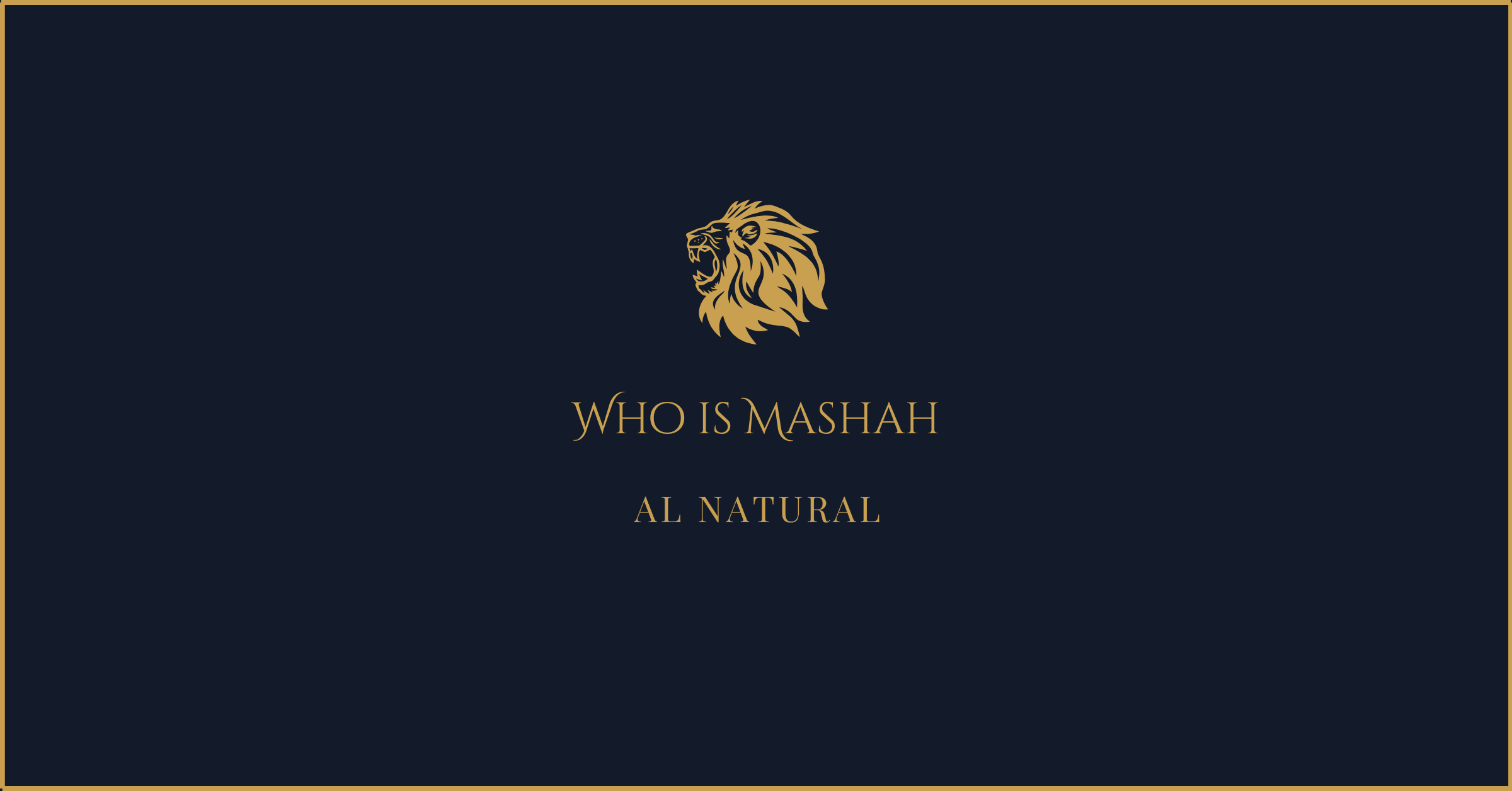

.png)


